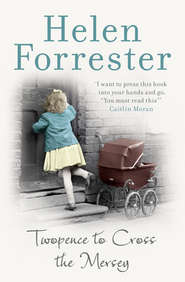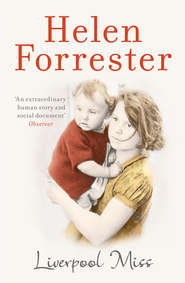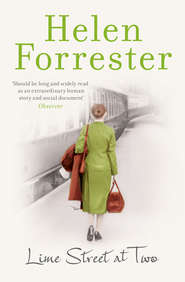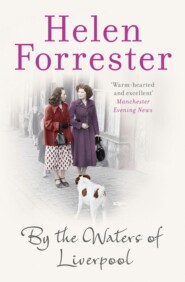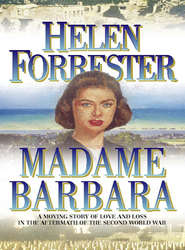По всем вопросам обращайтесь на: info@litportal.ru
(©) 2003-2024.
✖
The Liverpool Basque
Настройки чтения
Размер шрифта
Высота строк
Поля
She glowed, as she looked up at him with frank yearning. Why tell him that she was at home because the doctors could do no more for her?
‘I’m doing quite well,’ she affirmed. ‘I can sit in the yard – or on the steps, and I’m hoping to walk out soon.’
He looked into the big blue eyes turned up towards him, so like his wife’s but without her beauty; and he knew that she was lying. He played up to her, however, and joked about all the young Basques who would ask her out when she could get about again. Manuel came to lean against her, so as to be included in his father’s attention. He realized that nobody but his father ever kissed Auntie Maria, and he sensed his aunt’s pleasure at being so closely touched by another human being, though he did not yet fully understand her inner loneliness, caused by other people’s fear of catching her dread disease.
Grandma Micaela turned quickly away from the little group, and went to fetch some wine glasses from the dresser. There was a lump in her throat and she wanted to cry. With Leo gone and Agustin rarely in Liverpool, her daughters were doubly precious to her, and yet she had to accept that Maria was preparing for a much longer journey.
She took a big breath, and, with her hands full of glasses, she turned back to the family. ‘Let’s have a drink,’ she suggested gaily. ‘Juan, dear. Get a bottle out for us.’
As Grandpa produced a bottle of good Basque wine, Rosita said cheerfully to Pedro, ‘You haven’t met your daughter yet!’
She bent down and scooped the child out of her wooden cradle, and thrust her into her father’s arms. Francesca stared up at him with some perplexity. She opened her tiny mouth to cry. Pedro suddenly laughed, and said to Rosita, ‘She’s the dead spit of you. Look at her! Blue eyes and all that red fluff on her head.’
His wife playfully shook her red mane over the baby’s face. ‘She’s goin’ to be just like her mam, aren’t you, luv,’ she said to the child, and Pedro’s loins ached, as the creamy skin of his wife’s neck came close to him.
The baby whimpered uncertainly, and Rosita snatched her back. Manuel promptly eased himself on to his father’s knee. Over his head, Pedro asked her, ‘Did you have a bad time with her?’
‘Not too bad,’ she told him.
He took a sip of his wine, and looked wickedly over his glass at her. She flounced provocatively away from him to return the child to her cradle, and stood, hand on hip, watching him, as she rocked the cradle with her foot to soothe the baby.
The kitchen fell silent after this as everyone sipped their wine, and listened to the tolling of the bell of the dock railway train, as it passed along the street under the overhead railway, and to the usual turmoil of the machinery in the buildings at the back of the house.
While the train clattered rhythmically on its way, Pedro stared at his half-empty glass and wondered what to say. Once greetings had been exchanged, he had to pick up the threads of his life ashore; it was like trying to understand the gist of a novel after commencing to read it in the middle of the volume.
Rosita wrote to him regularly during his absences, though, occasionally, he received the letters only when he returned to Liverpool; in any case, they did not really convey to him the daily ups and downs of the family. It took time to understand all the references made in the course of the family’s conversations.
There were times when Pedro felt that his shipmates were closer to him than his family was; they certainly knew more about each other than their families did. He had sailed with some of them for years. Yet he loved Rosita; and Manuel was someone to boast about through many a monotonous day at sea. He felt guilty that his first inner reaction to the new baby had been that it would be something to tell his mates about when he returned to sea – another beautiful redhead. He ran his fingers through his roughly cut hair; it was sticky with salt. He could use a good scrub down in the old tin bath; but he could have it only when all the family had gone to bed, and he could have the privacy of the empty kitchen-living-room. He sighed, and puffed at his pipe.
The awkward silence was broken by Manuel. With his head against his father’s shoulder, he asked shyly, in Basque, ‘What’ve you brought me, Daddy?’
Pedro immediately snapped out of his reverie and put down his pipe. ‘Aha!’ he exclaimed mysteriously. ‘Wouldn’t you like to know?’ He clutched the boy tighter, enjoying the child’s warm trust.
Manuel giggled and pushed himself off Pedro’s knee. ‘Let’s see,’ he urged, and trotted towards the kitbag, still lying in the hall.
Underneath all the impedimenta of a seaman’s life, just when it seemed to Manuel that his father must have lost the gifts he had purchased, they unearthed a cream jug in the shape of a cow, for Grandma to add to her collection of little jugs, and a big tin of good Virginia tobacco for Grandpa.
A parcel, wrapped in tissue paper, was handed to Rosita, who cautiously peeped into it, and then blushed and giggled when she discovered a lace-trimmed petticoat. She hastily wrapped it up again, while Manuel’s mouth drooped and his eyes grew wide with disappointment. A further burrowing in the bag produced a pretty pair of hair combs for Auntie Maria.
Pedro glanced up at Manuel, as he felt down to the bottom of the bag. ‘I hope I haven’t lost it,’ he said, with mock anxiety. He pulled out an old sweater, and then another one. But the second sweater was wrapped around something.
Very carefully, Pedro loosened the bundle and lifted out a model yacht, its mast and sails folded flat. He handed it to his son. ‘Guaranteed to sail – and not to sink,’ he told his son.
Manuel took it gingerly from him. Nobody amongst his school friends had anything to equal it – he was sure of that. ‘Will it really sail?’ he asked, as he twisted it round to have a better look at it.
‘Given a decent breeze it will – like a real one. Tomorrow, we’ll go up to the park and try it on the pond. You’ll soon get the hang of it.’
The pond? That was where grown-up men took their model yachts, yachts carefully pushed through the town in old perambulators, because they were too big to carry.
The child’s face was beatific. He determined that he would never let Andrew get even a glimpse of the little boat; he was not going to chance its being taken from him.
Grandpa leaned forward. ‘Let me see it, Mannie.’
Manuel used both hands to pass it to his grandfather, and the old man took a closer look at it: the brass rails, the finely polished wood, and the correct rigging. ‘Nice piece of work,’ he said. ‘Must’ve taken a while to do that.’
‘Aye, it did. It’s to scale.’
Juan handed the boat back to his grandson. ‘You don’t take that up to the park by yourself,’ he instructed. ‘When your dad’s away, I’ll come with you.’ He, too, was aware of the predatory children, some of them homeless, who ran wild in the streets.
Manuel promised.
Rosita bent over them, to admire the little vessel, and Pedro slyly pinched her bottom.
She shot a shocked glance of reproof at him. ‘Not in public!’ she hissed, trying to look suitably outraged.
A further diversion, which relieved Pedro’s feeling of strangeness in his own home, was created by the sound of hob-nailed boots in the hall, as Jean Baptiste Saitua and two of his sons stepped tentatively through the open front door; it did not take long for the Basque community to learn through the grapevine any bit of news, like a return from sea, and these old friends of the entire family felt free to step in and inquire how Pedro was.
Grandpa leaned back in his chair to look down the hall. ‘Come in,’ he shouted. ‘How are you, Jean – Domingo – Vicente?’
They tramped in and shook Pedro’s hand and slapped him on the back, while Rosita quietly slid over to the fireplace, to remove the chicken casserole from the oven and place it on the warming shelf above the fire; she winked at Aunt Maria, sitting quietly watching the scene. ‘Heaven only knows when we’ll get our tea,’ she muttered to her sister. ‘Would you like another glass of wine?’
Maria smiled gently and nodded. ‘Yes.’
Grandma, equally resigned to a long session of male reminiscences, was already getting more glasses and another bottle of wine. Jean Baptiste was a bosun with a small Basque shipping company sailing out of Liverpool; he had a couple of nights’ leave. Domingo was a ferryman, and Vicente was in his last year at school. After much joking, Vicente was allowed a glass of wine, though Jean Baptiste said his mother would probably be after him, if she smelled it on his breath.
The cakes intended for dessert were brought out and handed round, and the party became quite merry. Pedro abandoned hope of a bath that evening, and Rosita was beginning to wonder if she could stretch her chicken casserole to feed three extra men, when Maria began to cough violently. The hilarity ceased immediately, and Grandma said, ‘Don’t worry. I’ll take her upstairs – it’s just the smoke.’
Fat, jolly Jean Baptiste quickly rose from the table, however, his heavy jowls suddenly drooping. ‘Ah! I forgot!’ He looked round the room, thick with blue tobacco smoke. ‘I’m sorry, Maria.’ He turned to Grandpa, and said, ‘We can meet in the Baltic later on; some of the other lads’ll be sure to be there.’
With grave dignity, he eased himself and his sons out of the crowded room, calling his thanks to Grandma for the wine and cake.
His sons clattered down the steps to the pavement, while he paused at the top, to speak to Juan and Pedro. ‘The wife told me Maria was back home. I thought she must be well again. How is she?’
Grandpa’s shoulders went up in a hopeless shrug. ‘They can’t do anything for her – but you mustn’t worry about the tobacco smoke; she loves to be part of what’s going on. If we put her upstairs all the time, she’d die of loneliness.’
‘Of course, poor girl. It must be a terrible worry to you.’
He turned to Pedro. ‘See you later, lad.’
And Pedro, who simply wanted to go to bed with his wife, nodded agreement.
Chapter Nine (#ulink_88f2ccda-c91f-5917-a1a9-0d0b94caeb95)
While Micaela unbolted the back door to open it, to let out the tobacco smoke, Rosita quickly filled a glass of water and handed it to Manuel. ‘Give this to Auntie; it’ll help her stop coughing.’
The little boy obediently took the glass over to his struggling aunt. Rosita leaned over the sink to heave up the sash window; it had been partially open during the Saituas’ visit; now she struggled to push it up further, but after a couple of inches, it stuck in its rotting wooden frame. ‘Blast,’ she muttered, ‘I’ll have to tell the rent collector when he comes.’
Micaela pushed her slightly aside, so that she could damp a towel under the tap. As she turned and wiggled her way between the scattered kitchen chairs to get to Maria, she said grimly, ‘You can tell him – but don’t expect him to do anything. Better to get your father to have a look at it.’






